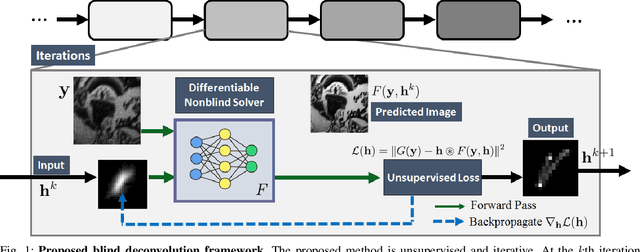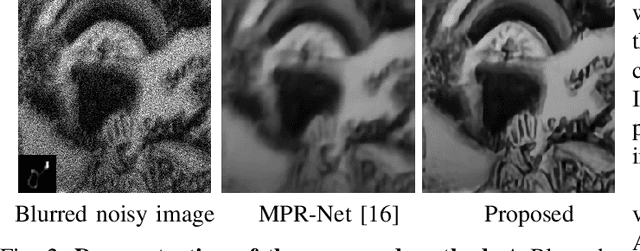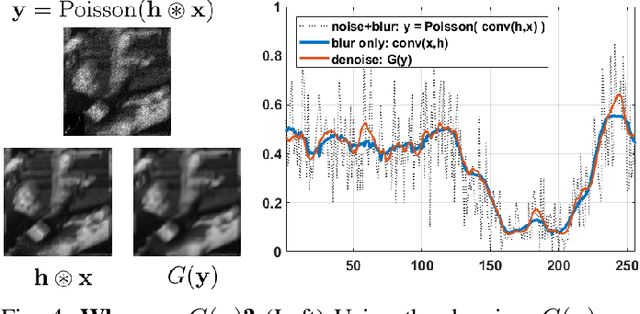Photon-Limited Blind Deconvolution using Unsupervised Iterative Kernel Estimation
Paper and Code
Aug 02, 2022



Blind deconvolution in low-light is one of the more challenging problems in image restoration because of the photon shot noise. However, existing algorithms -- both classical and deep-learning based -- are not designed for this condition. When the shot noise is strong, conventional deconvolution methods fail because (1) the presence of noise makes the estimation of the blur kernel difficult; (2) generic deep-restoration models rarely model the forward process explicitly; (3) there are currently no iterative strategies to incorporate a non-blind solver in a kernel estimation stage. This paper addresses these challenges by presenting an unsupervised blind deconvolution method. At the core of this method is a reformulation of the general blind deconvolution framework from the conventional image-kernel alternating minimization to a purely kernel-based minimization. This kernel-based minimization leads to a new iterative scheme that backpropagates an unsupervised loss through a pre-trained non-blind solver to update the blur kernel. Experimental results show that the proposed framework achieves superior results than state-of-the-art blind deconvolution algorithms in low-light conditions.
 Add to Chrome
Add to Chrome Add to Firefox
Add to Firefox Add to Edge
Add to Edge